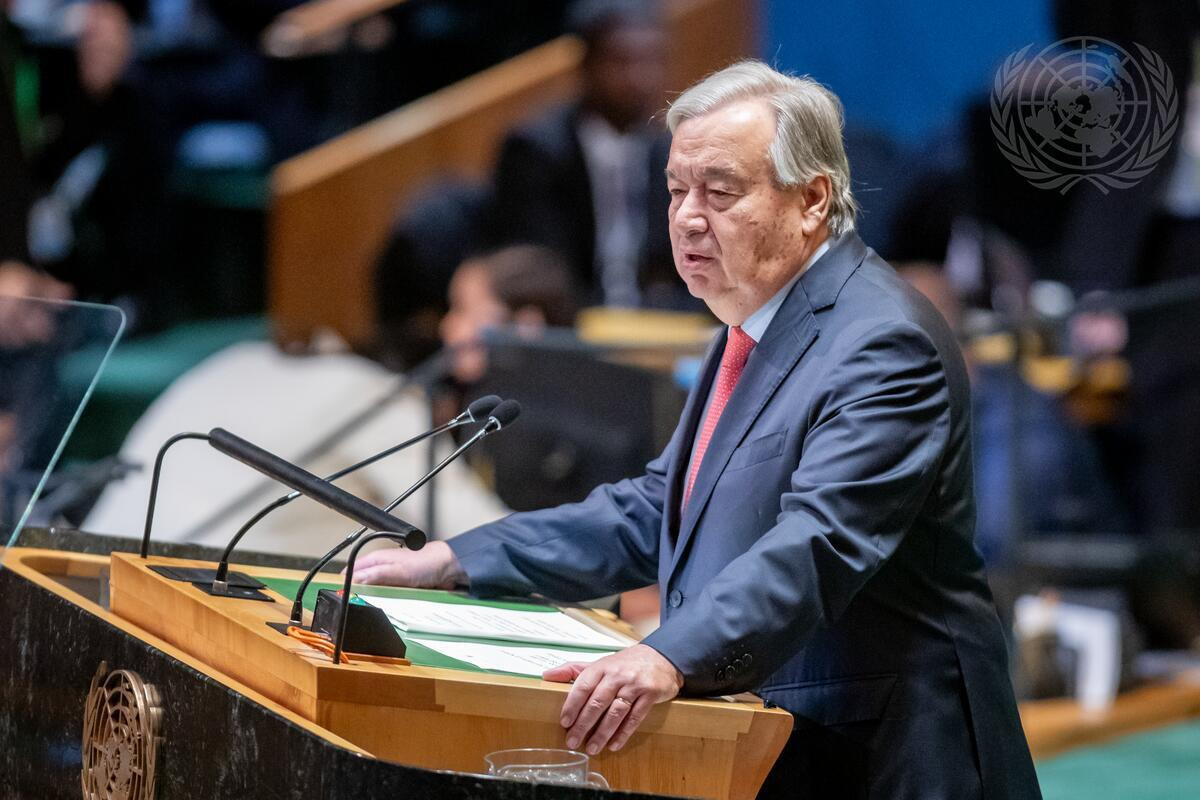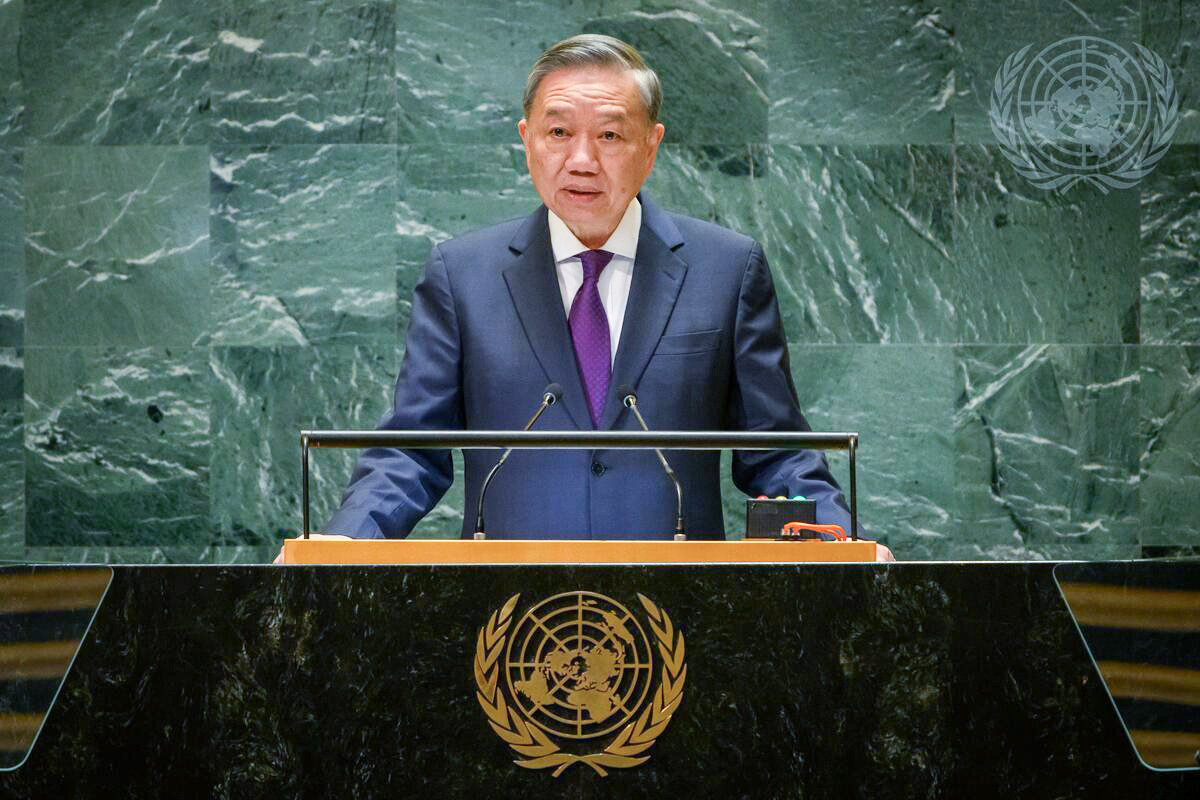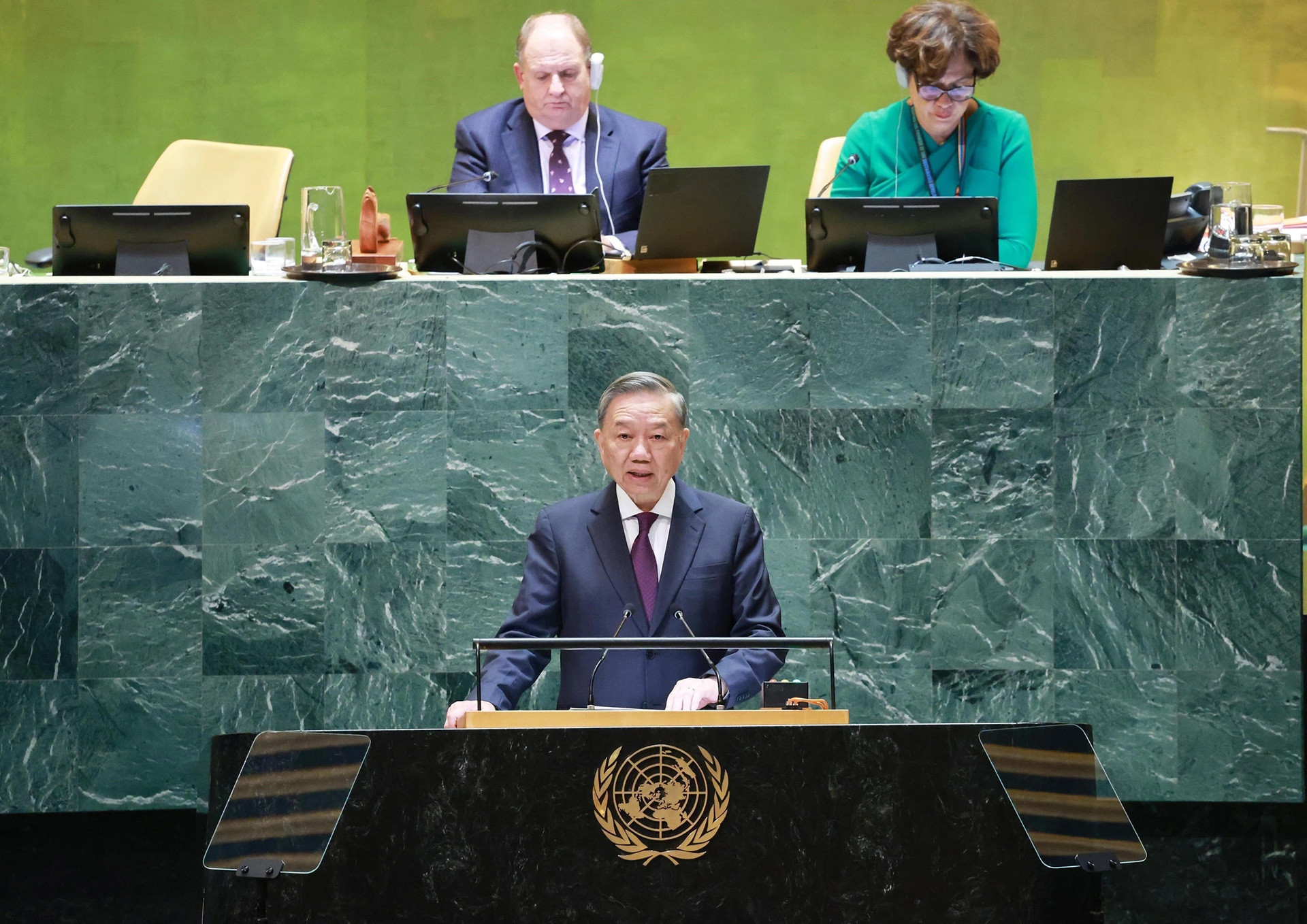At the United Nations, General Secretary and President To Lam delivered a comprehensive and robust message on "Strengthening Multilateralism and Acting Together to Build a Peaceful, Stable, Prosperous, and Sustainable Future for All People."
Addressing leaders from around the world, Mr. To Lam emphasized the necessity of global unity and action to overcome the significant challenges of inequality, geopolitical tensions, and environmental threats, reinforcing Vietnam’s commitment to international law and sustainable development.

On September 24, at the United Nations headquarters in New York, USA, the 79th session of the United Nations General Assembly commenced with the theme "Leaving No One Behind: Acting Together to Promote Peace, Sustainable Development, and Human Dignity for Today's and Future Generations."
The session was attended by 155 heads of state and government from UN member countries, along with leaders of international and regional organizations. General Secretary and President To Lam participated in the opening ceremony and spoke at the first general debate.
In his opening remarks, UN Secretary-General António Guterres warned of geopolitical competition, unresolved conflicts, climate change, nuclear weapons, and emerging weapon threats as a "powder keg" ready to explode, pushing the world towards disaster.
Mr. Guterres asserted that the international community could overcome these challenges if it thoroughly addresses the root causes of global division, such as inequality, violations of international law, and the UN Charter.
President of the 79th UN General Assembly, Philemon Yang, emphasized that international cooperation is essential to address global issues and build a better future for all.

In his speech, General Secretary and President To Lam delivered a potent and comprehensive message on "Strengthening Multilateralism and Acting Together to Build a Peaceful, Stable, Prosperous, and Sustainable Future for All People."
According to General Secretary and President To Lam, the world is experiencing epochal changes. Although peace, cooperation, and development are major trends, they face new and more serious challenges and difficulties.
Non-traditional security challenges are intensifying, with climate change, extreme weather events, natural disasters, pandemics, resource depletion, and population aging hindering humanity's development efforts. Poor countries are left further behind, widening the development gap.
General Secretary and President To Lam cited the recent Typhoon Yagi, which Vietnam and other regional countries endured with devastating consequences, as a stark reminder of the severe impacts of natural disasters and climate change.
The global economy is struggling to grow, and trends of "decoupling" and fragmentation along with economic sanctions threaten rapid and sustainable development. The Fourth Industrial Revolution offers breakthrough development opportunities but also poses challenges related to security and societal safety.
General Secretary and President To Lam highlighted these unprecedented difficulties and challenges facing peace, cooperation, sustainable development, and human dignity for current and future generations.
The current situation demands collective action, effort, and close cooperation among all countries, leveraging the role of international institutions, primarily the United Nations, and regional organizations, including ASEAN.
Sharing Vietnam's vision for the future, General Secretary and President To Lam emphasized that peace and stability are the foundation for building a prosperous future. Nations, especially major ones, should adhere to international law, the UN Charter, act responsibly, honor commitments, contribute to common tasks, strengthen unity, sincerity, trust, prioritize dialogue, and eliminate confrontation.

General Secretary and President To Lam believes it is essential to ensure equitable development for each country, community, and individual under different economic, social, and cultural conditions. It is crucial to mobilize and use all resources effectively for development suited to each country's needs.
Priority should be given to "low-lying areas" in implementing sustainable development goals. Focus on supporting developing and underdeveloped countries, especially with preferential capital, advanced technology transfer, high-quality human resource training, and facilitating investment and trade to alleviate the debt burden on poor countries.
General Secretary and President To Lam stressed the need to establish smart global governance frameworks with a long-term vision for science and technology, especially emerging technologies like artificial intelligence, to ensure the promotion of positive achievements while proactively preventing threats to peace, sustainable development, and humanity.
A new mindset is needed to build a future characterized by strong, comprehensive transformation, focusing on digital transformation, green transformation, and global governance transformation. Here, according to General Secretary and President To Lam, green and digital transformations are critical tools to help countries, especially developing ones, enhance resilience against shocks, crises, and disasters.
It is essential to reform multilateral mechanisms, especially the United Nations and international financial and monetary institutions, to better ensure representation, fairness, and transparency.
General Secretary and President To Lam emphasized placing humans at the center of realizing these visions. People should be at the heart, the goal, and the driving force of all policies and actions at all levels. Invest and develop the youth comprehensively in knowledge and culture based on common values and a spirit of responsibility and contribution.
In today's rapidly changing world, every country plays a vital role in the grand symphony of the era.
Vietnam is striving to realize a peaceful, stable, prosperous, and sustainable future, not only for its people but also for all nations worldwide.
Tran Thuong